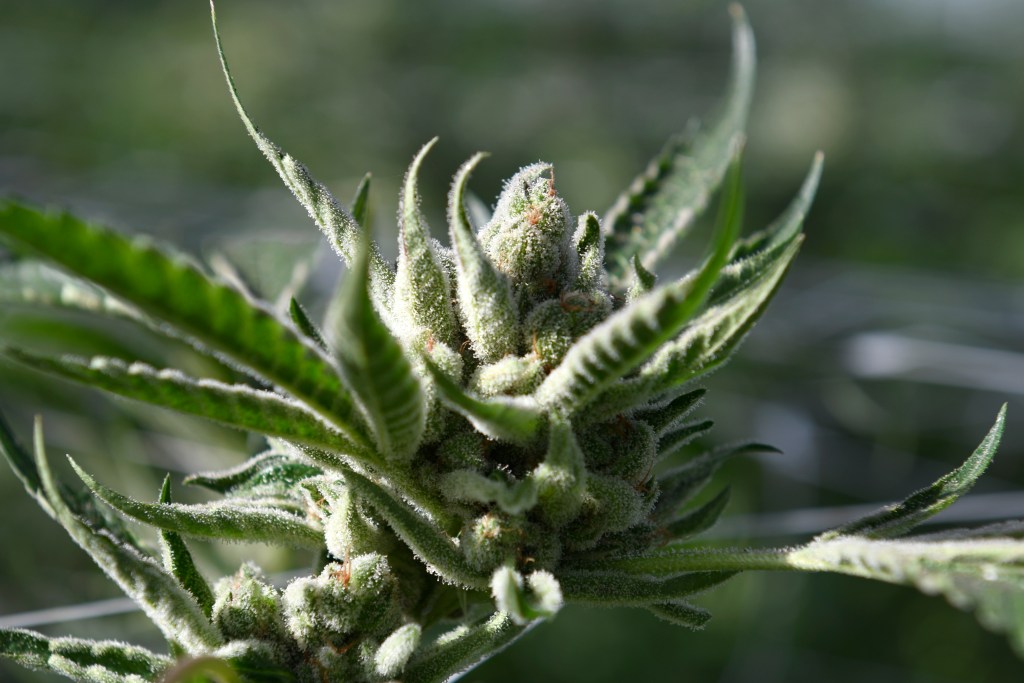The escalating political tug of war erupting over Santa Barbara’s emerging cannabis industry got a few more yanks this past week with the Santa Barbara County Planning Commission soundly rejecting the first appeal that body has heard challenging the validity of a land-use permit that had been issued to a cannabis operator. In this case, the Planning Commission voted 4-to-1 to deny the appeal of land-use permits issued earlier this year to Graham Farrar, the principal behind five greenhouses — which would occupy 356,000 square feet when built — at 3561 Foothill Road in Carpinteria.
County planners issued the permits to the farm — G&K Farm/K&G Flower — on March 15. The issue dominating the Planning Commission debate was the adequacy of the odor-control system installed and what the county’s role should be in ensuring that they functioned as promised. Although the commissioners upheld Farrar’s permits, they also voted to tighten up the county’s regulatory language where odor-control issues are concerned.
Under existing language, compliance inspections would be triggered if there were three complaints filed. At that point, the county cultivator could order the grower to make necessary changes or be shut down. Under the new language adopted by the Planning Commission, the county will hire a private industrial hygienist — at the growers’ expense — to conduct regularly scheduled inspections to ensure odor pollution is not occurring.
No cannabis is currently growing at G&K Farm/K&G Flower, and it is not now the subject of neighborhood odor complaints. According to planning commissioners, Farrar has taken pains to follow all the rules and has already installed an odor-neutralization system. The appellant, Maureen Claffey on behalf of Concerned Carpinterians, objected that the effectiveness of the Byers Scientific system installed by Farrar was not proven.
Critics of the cannabis industry have suggested that not enough is known yet about long-term exposure to the vapors emitted by the Byers system. Marc Byers, CEO of the company, took pointed exception to such comments and delivered a detailed defense of his approach. He explained that his company does not mask smells so much as change the molecular structure of the odor-intense terpenes given off by cannabis plants. This, he explained, is done by shooting a vapor cloud made up of water and essential oils into the air. These molecules fuse with the terpenes to create a new compound that is not read by the nose and brain as a smell.
Byers outlined how his company intends to test for errant odors in the future. He is assembling what he called a “dream team” of odor-control scientists and a team of six expert human sniffers — which he likened to state-of-the-art taste testers in the wine industry, or sommeliers. Each of these sniffers will be given air samples — collected in Kevlar bags at successive distances from the perimeter of the cultivation sites — which will be sniffed for evidence of cannabis’s tell-tale, pungently invasive aroma. There was also extensive discussion about other technologies deployed to control the smells produced by greenhouse cannabis.
This was the first of many such appeals that cannabis critics will be filing. Some planning commissioners opined it was long on emotion and short on legally supportable grounds. They did, however, take concerns about odor pollution seriously. Their change, they hoped, will give county regulators the tools needed to nip such issues in the bud sooner rather than later.
In the meantime, the Santa Barbara County’s Cannabis Compliance Team, made up of Sheriff’s deputies, cracked down on what they claimed were two illegal grow operations, one in Carpinteria and one in Montecito. The press release issued by the Sheriff’s department indicated 15 Armenian workers were trimming weed at the Montecito property, which allegedly was connected to the Carpinteria grow. That detail is of significance because among the many concerns enumerated by cannabis critics is the involvement by Russian and Armenian mobsters.
In addition, Sheriff’s officers raided another processing plant this week located in Los Olivos. This reportedly was connected to an illegal grow operation in Lompoc. These enforcement actions were announced at a time when the county supervisors and high ranking administrators have found themselves under increasing political pressure to crack down on non-compliant operations.

